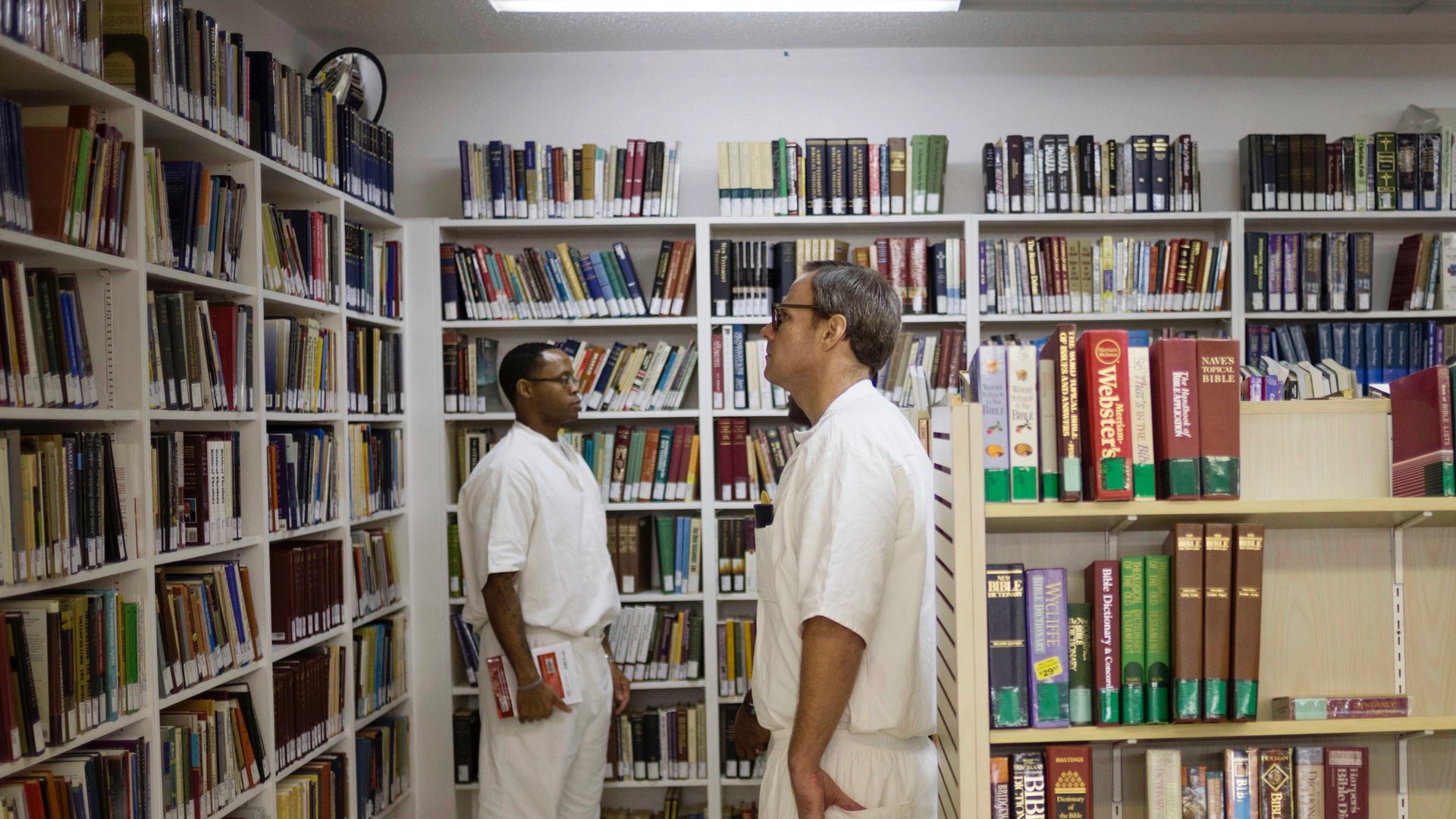To reduce recidivism rates, give prisoners more books
Prison works as punishment. But many argue that it doesn’t prevent repeat offending, or recidivism, on its own. The US Bureau of Justice Statistics reports that 75% of released inmates are rearrested within five years—which is not just a societal problem, but also a major taxpayer expense.


Prison works as punishment. But many argue that it doesn’t prevent repeat offending, or recidivism, on its own. The US Bureau of Justice Statistics reports that 75% of released inmates are rearrested within five years—which is not just a societal problem, but also a major taxpayer expense.
Yet a cheap, effective, and simple solution exists, several studies have shown: Reading reduces recidivism.
Bob Waxler, an English professor at the University of Massachusetts, has been working to prove this point for 25 years with a program called Changing Lives Through Literature. It began in 1991 with a local judge who expressed dismay about turnstile justice—repeatedly seeing the same offenders coming through the courtroom. Waxler convinced the judge to help him test a theory—namely, that reading has a “humanizing effect.”
The literature professor had a hunch that reading would transform convicts, just as it transforms his college students, and his study results appeared to support that idea. The first group of CLTL program participants showed a 19% recidivism rate after a year, compared to 45% in a control group, and subsequent studies have repeated these results. The program has inspired similar efforts in other states.
It’s effective, according to Waxler, because reading teaches empathy, complexity, how to face shame, and how to build personal dignity. By relating to fictional characters, readers shift perspectives and make choices they wouldn’t otherwise. That, he says, is “the magic of reading.”
This magic once manifested during a discussion of Ernest Hemingway’s Old Man and the Sea, for example. A convict said that he had heard the struggling protagonist, Santiago, urging him to resist the temptation to do drugs that very day. “The fictional character became the real man’s friend,” Waxler says. “Santiago saved that guy’s life.”
Over the years, CLTL has become popular with judges, who sometimes also participate. Many ultimately thank the professor for reconnecting them with the joy of reading and the humanity of defendants. To Waxler’s surprise, the appeal is wide. Even conservative “hanging judges” in Texas saw the merits of the program and adopted it.
There’s a big benefit to society, too. A study of recidivism and prison education programs by the Rand Corporation in 2013 concluded that inmates who receive some education “are significantly less likely to return to prison after release and are more likely to find employment than peers who do not receive such opportunities.”
Prison education programs are also cost-effective. A $1 investment in education reduced incarceration costs by $4 to $5 during the first three years post-release, the study found.
The quest for effective sentencing strategies is an international preoccupation, and reading is considered beneficial in criminal justice systems around the world. A judge in Iran orders offenders to buy five books, write about them, and then donate them to the incarcerated. Meanwhile, prisoners in Italy can reduce their sentences by three days for every book they read. In Brazil, reading a book is worth more; it can shave four days off a sentence.
Moral of the story? Fictional tales influence real lives. Reading literature can change the way offenders see themselves and the world. This, in turn, makes life a little better, and safer, for everyone.